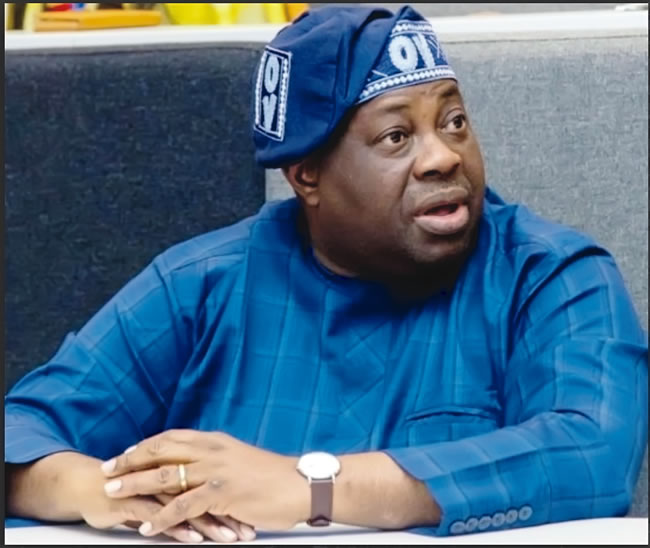Ologbondiyan accuses presidency of coercing PDP governors to join APC
A former spokesperson of the Peoples Democratic Party (PDP), Kola Ologbondiyan, has alleged that governors elected on the platform of the party are being coerced into defecting to the ruling All Progressives Congress (APC) through systematic harassment and political pressure.
Ologbondiyan made the claim on Tuesday during an interview on Sunrise Daily, a Channels Television programme.
He said that while the PDP is grappling with internal disputes, a more deliberate strategy is being employed by the APC to weaken the opposition through targeted intimidation.
“They are being humiliated and, whether they can openly say it or not, they are being forced to abandon their party and join the All Progressives Congress and President Asiwaju Bola Ahmed Tinubu’s political party,” Ologbondiyan stated.
His comments followed renewed speculation over political defections after a reconciliation meeting held last week between President Tinubu, suspended Rivers State Governor Siminalayi Fubara, and Minister of the Federal Capital Territory, Nyesom Wike. The closed-door meeting, which reportedly ended in a truce, was accompanied by photographs of the three smiling together — a sharp contrast to the high-stakes political feud that had led to the suspension of the Rivers State executive and legislature in March 2025.
The rift between Fubara and Wike had escalated into a full-blown political crisis, prompting President Tinubu to invoke Section 305 of the 1999 Constitution and declare a state of emergency in the state on March 18. The move suspended Fubara, his deputy Ngozi Odu, and all members of the State House of Assembly for six months. The President appointed retired Vice Admiral Ibok-Ete Ibas as interim administrator.
Tinubu had justified the declaration by citing security threats, including pipeline vandalism and militant activity, which he said the Rivers State government failed to address. The Supreme Court, in earlier rulings, had also criticised Fubara for unconstitutional conduct, particularly the demolition of the Assembly complex and attempts to govern without legislative oversight.
Ologbondiyan acknowledged that the crisis in Rivers State represented a setback for the PDP, but warned against assuming that defections were voluntary or driven purely by dissatisfaction with the party’s internal leadership.
“The PDP did all it could, some on a negative side, others on a positive side,” he said. “But what we are seeing now is not just about Rivers. Our governors are being targeted.”
The PDP has already seen defections by Governors Sheriff Oborevwori of Delta State and Umo Eno of Akwa Ibom, both of whom blamed internal party disunity for their decisions to cross over to the APC.
Meanwhile, sources within the presidency confirmed that Tinubu is preparing to reinstate Fubara and the State House of Assembly before the end of July as part of a broader political reconciliation deal brokered with Wike. However, the arrangement reportedly comes with conditions that significantly reduce Fubara’s influence.
According to insiders, the agreement requires the governor to forgo a second term bid in 2027 and surrender control of local government administration to Wike’s political network. In return, impeachment proceedings against him will be dropped and the 27 pro-Wike lawmakers reinstated.
Fubara is also expected to pay all outstanding entitlements owed to the lawmakers. In line with the peace pact, his key political platforms — including the “Simplified Movement” and affiliated support groups — have been dissolved, signalling a retreat from his prior independent stance.
Wike and Fubara publicly affirmed the peace deal in statements following the meeting with Tinubu. Wike said, “We have all agreed to work together with the governor… we are members of the same political family.” Fubara added that peace had returned and pledged to sustain it.
While the developments have been framed as a resolution of the crisis, PDP leaders like Ologbondiyan insist that the broader context involves a sustained attempt to dismantle the party’s structure by undermining its governors through political coercion.
“The bigger picture here is that the opposition is being structurally dismantled under the guise of conflict resolution,” he said. “If this continues unchecked, Nigeria may lose the semblance of multi-party democracy that it currently maintains.”









